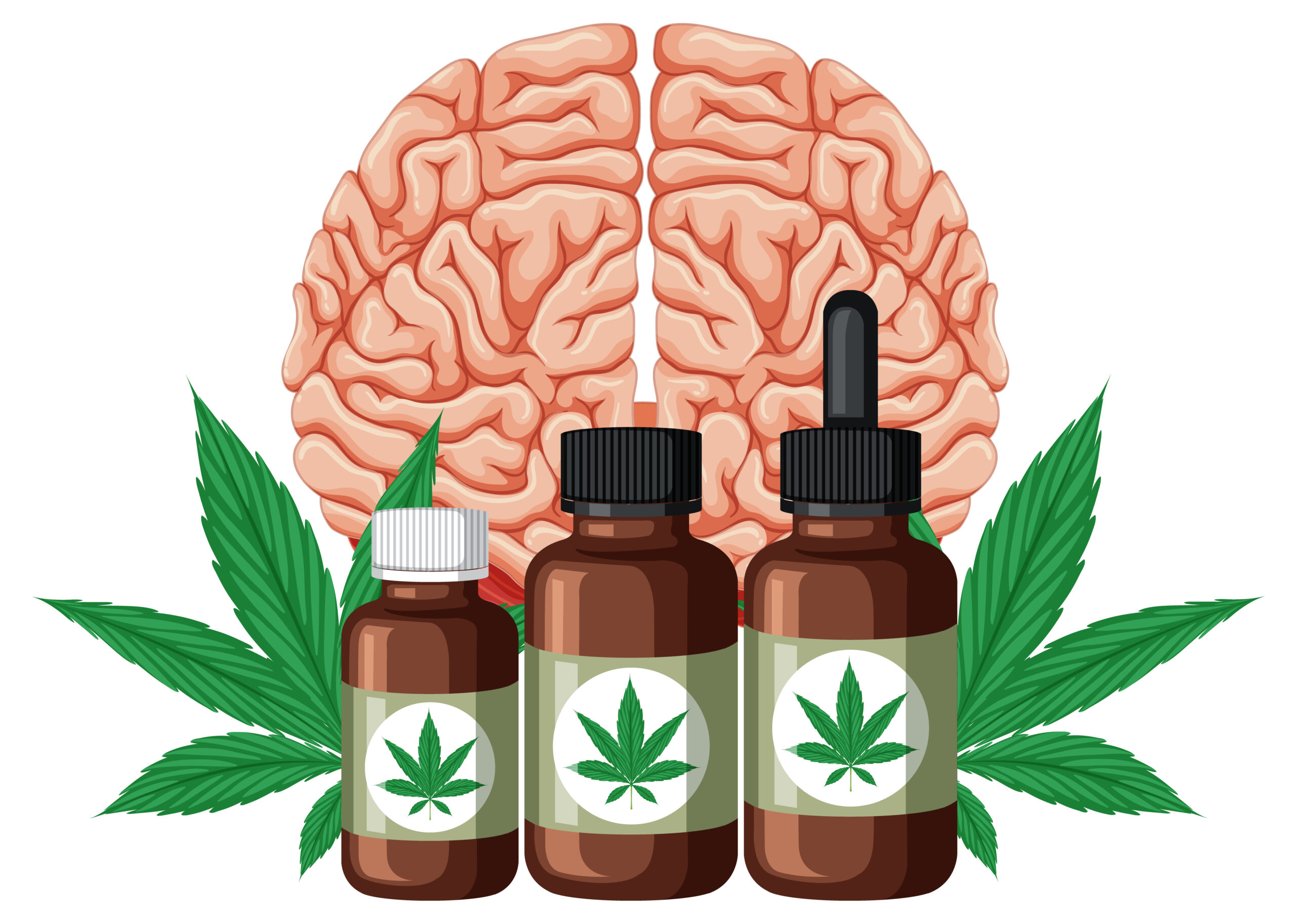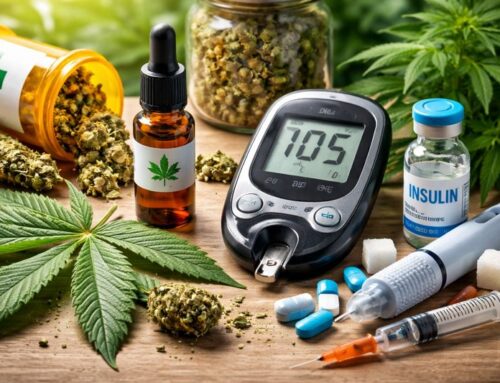The use of medical marijuana, which has come into popularity recently as a mode of treatment for various medical conditions such as chronic pain, anxiety, and epilepsy, has grown and started getting massive acceptance. Although the use of medical cannabis provides relief of symptoms in many people, there is an increasing worry about the effects that this substance may have on the mind, especially when used by people with a history of psychiatric disorders. Mental health problems triggered by medical marijuana are becoming a growing concern, and with the rising number of states legalizing medical and recreational cannabis usage, it is critical to investigate possible risks of marijuana usage, at least referring to its long-term effects and possible connections with mental disorders.
Concepts About the Endocannabinoid System and Cannabis
Before we discuss the possible effect of medical cannabis on feelings and mood, we should first know how it functions in the body. An endocannabinoid system (ECS) is a body system that is used in the regulation of many of our body functions, such as our mood, pain perception, and appetite, among other things.
Cannabis consists of two components, i.e., THC and CBD. This is the component that causes people to have a feeling after smoking marijuana. CBD does not cause you to have a high sensation, but it causes you to have some health problems.
As much as cannabis has various effects on ECS, its impact on the long-term effects of frequent use of cannabis, particularly in people with a family history of mental disorders, remains unknown.
Connection between cannabis and Mental Health Disorders.
People often use cannabis to help with pain, anxiety, depression, and stress. However, it has also been revealed that when used among other individuals (and especially individuals who have a predisposition to mental diseases), the consumption of cannabis may provoke (or worsen) the occurrence of mental diseases. The relationship between marijuana and mental health is quite complex, and it could be healthy or unhealthy depending on the rate at which an individual uses it once they decide to consume it or the genetic constitution in that specific case.
Young Adult Risks Involving the Mental Health
The use of cannabis is hazardous among the youth. It can damage their mental well-being, especially when consumed excessively by children and adolescents. Their brains are not yet totally developed, and sometimes cannabis may cause them more difficulties remembering things, learning new things, and dealing with emotional aspects.
When the youth indulge in cannabis use at an early age, they may end up having severe complications, such as seeing or hearing things that do not exist once they reach old age. This may occur, particularly when they have a predisposition towards these problems.
Cannabis Use and Psychotic Disorders
Using cannabis can be dangerous for your mind. It can cause problems, such as seeing things that aren’t there or feeling very scared for no reason. This is more likely to happen to people who have family members with mental health issues.
The part of cannabis called THC can change how the brain works. This can make hard feelings or strange thoughts worse for some people.
The cannabidiol (CBD) in Mental Health
THC is a part of cannabis that can lead to mental health problems. CBD is another part of cannabis that may help reduce the adverse effects of THC. Unlike THC, CBD doesn’t make you feel high and might help with feelings of anxiety or worry.
CBD could balance out the harmful effects of THC in the brain. It may also help with symptoms of anxiety and sadness. More studies are needed to understand how well CBD works for mental health.
The Increased Concern of Cannabis Use and Psychiatric Disorders: A Case in Point?
Increased incidence of mental disorders in users of cannabis.
It is found in the research that there is a high probability of people having mental disorders that could include anxiety, depression, and psychosis, as was found out in individuals using cannabis. Cannabis does not bring an immediate cause of these disorders. Still, it is known to precipitate an underlying mental issue, especially in people who are the most susceptible to mental illnesses.
The use of marijuana has been linked to increased risks of developing mood disorders, especially in those individuals who have had a case in the family regarding depression or anxiety. Consecutive use of cannabis may alter the brain chemistry to the level of vulnerability to mental illness, particularly in cases that encountered cannabis use as a coping mechanism to stress or emotional suffering.
The Effect of Chronic Cannabis Abuse
Long-term cannabis use may also be severe on the brain, especially on the memory, thinking, and feelings of people. The development of the brain could be disrupted when cannabis is used chronically, especially when its consumption starts during the adolescence period. Researchers have found out that persistent users of cannabis usually suffer problems related to memory and concentration, and this may affect their academic work and career.
Besides, heavy smoking of cannabis may predispose to chronic use, resulting in the development of psychiatric disorders among individuals who are genetically susceptible to it. A case in point is that an individual whose family members have schizophrenia or bipolar disorder is more prone to develop such disorders if they use cannabis regularly.
Controlling the psychological dangers of using cannabis
Knowledge of Your Risk Factors
Although cannabis is an effective cure for some diseases, it should also be noted that exposure to it can pose some dangers to persons who have a family background with mental disorders. In case you also have a close relative diagnosed with some psychiatric disorder, which can be schizophrenia or bipolar disorder, you can be more likely to end up developing some similar problems with the use of cannabis.
Often, a patient should disclose their mental health history to a healthcare professional before taking medical cannabis. They will assist you in evaluating your risk factors and deciding as to whether cannabis can be used to treat your condition or not.
Ethical Consumption of Cannabis in Medicine
However, in case you are willing to turn to medical cannabis, you are to keep in mind that you are to use it rationally and be under the control of a medical worker. Individuals who are already prone to mental health issues can reduce the possibility of adverse mental health conditions with the help of using cannabis moderately and in a reduced dose.
The book also does not forget to remind you that you need to test your mental health regularly throughout the process of consuming cannabis. The second tip is to seek immediate medical attention if you notice any changes in mood, behavior, or thinking. Addressing mental health symptoms early can prevent them from worsening and help ensure your treatment plan is effective.
Conclusion: Mental health problems triggered by medical marijuana
Medical cannabis may make some individuals feel better, but at the same time, it may also create problems, particularly for those who have mental health problems. Mental health issues triggered by medical marijuana use could cause other individuals to experience worsened moods or symptoms.
With the increasing number of individuals consuming cannabis, it is paramount to understand the associated impacts on mental health. You can be safer if you use it wisely and consult with a medical marijuana doctor. In case you or someone you know is considering using medical cannabis, a visit to a physician to discuss concerns and risks is highly recommended.
FAQs
What mental disorders does marijuana cause?
Marijuana may trigger or worsen mental disorders like anxiety, depression, or schizophrenia, especially in people with a family history of these issues. Some Indica vs. Sativa strains can affect mood differently, with Sativa sometimes linked to anxiety. This is why choosing carefully between homegrown medical marijuana and dispensary products matters.
What is the marijuana use syndrome?
Marijuana Use Syndrome, also known as marijuana use disorder, is when someone relies too much on marijuana and has trouble stopping. This can happen with regular use, whether it’s homegrown medical marijuana or bought from stores. It can worsen mental health and increase the confusion between hemp and marijuana for new users.
What are at least three signs of marijuana use disorder?
Common signs include needing more marijuana to feel the same effects, losing interest in daily activities, and trying but failing to quit. These symptoms may appear in users who don’t understand if marijuana is a stimulant or how Indica vs. Sativa strains impact the brain differently.
How does marijuana contribute to mental health disorders?
Marijuana can affect brain chemicals and lead to mood swings, anxiety, or even psychosis in high doses. In places like Medical Marijuana in Mississippi, laws are strict, and knowing how strains work helps avoid problems. Confusing hemp with high-THC weed (confusion between hemp and marijuana) can also lead to misuse.
How does marijuana affect the body physically and mentally?
Physically, marijuana may slow movement, affect heart rate, and impact memory. Mentally, it can cause calmness or anxiety, depending on the user and strain. Understanding Indica vs. Sativa, and the difference between homegrown medical marijuana and dispensary types helps avoid harmful effects—especially if unsure if marijuana is a stimulant or not.





